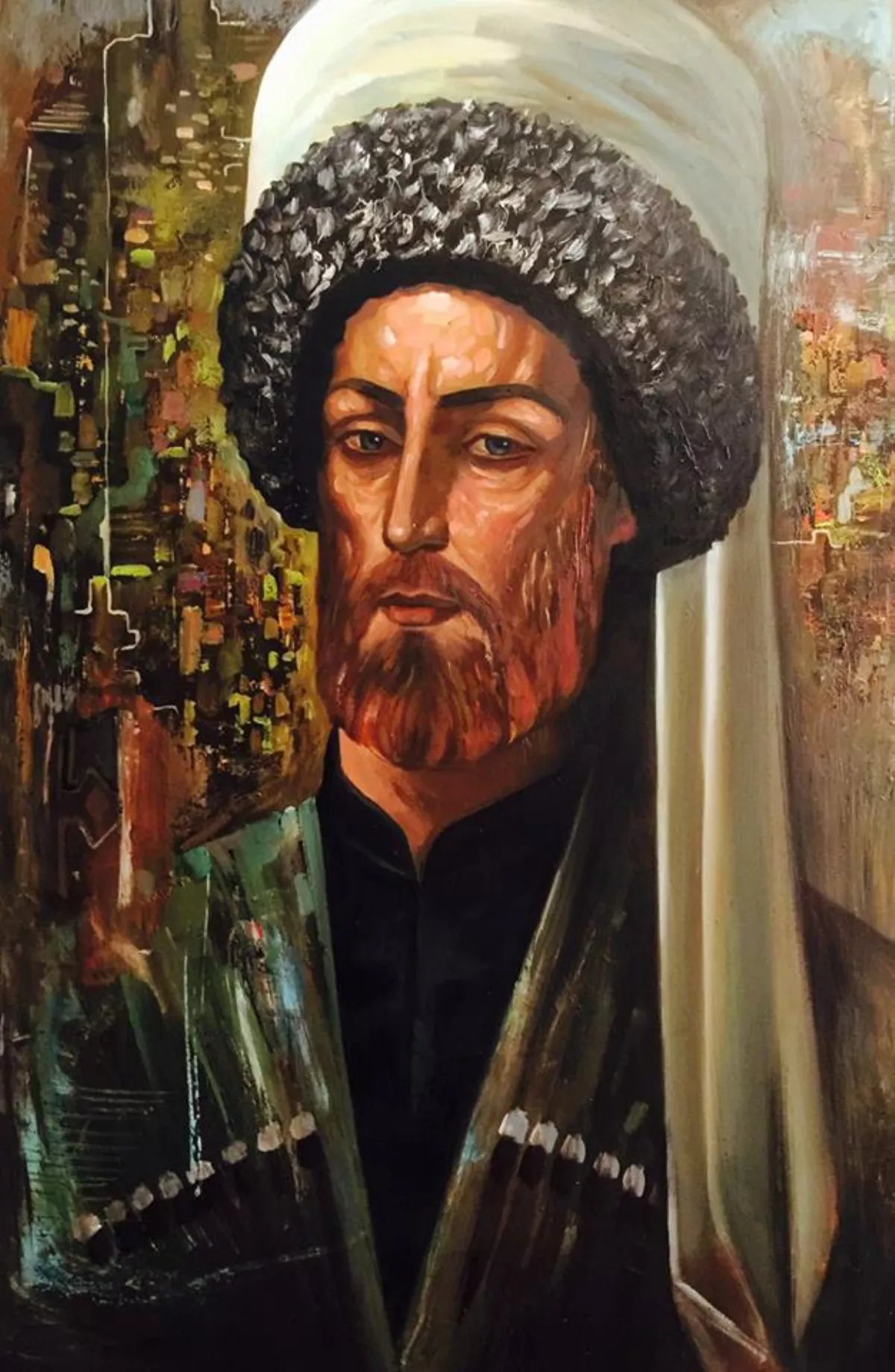 1.
1. Sheikh Mansur is considered the first leader of the resistance in the North Caucasus against Russian imperialism.

 1.
1. Sheikh Mansur is considered the first leader of the resistance in the North Caucasus against Russian imperialism.
Sheikh Mansur remains a hero of the Chechen and North Caucasian peoples in general, and their struggle for independence.
Sheikh Mansur came from a family of poor Chechen farmers of the Elistanzhi teip.
Sheikh Mansur married a woman named Checha and, according to one source, had a son and two daughters.
Sheikh Mansur saw a vision of two mounted messengers from the prophet Muhammad who tasked him with preaching Islam to the Chechens and nearby peoples.
Sheikh Mansur apparently believed that he was the Mahdi, a savior-like figure in Islamic eschatology who was supposed to appear in the thirteenth century of the Islamic calendar.
Sheikh Mansur claimed that his direct contact with the Prophet granted him the ability to see into the future and protect his followers from being struck in battle.
In 1784, he adopted the name Mansur and began to style himself as the sheikh and imam of the mountain peoples.
Sheikh Mansur called on them to adhere closely to the Sharia and to reject what he considered non-Islamic practices, such as customary law, consumption of wine, and smoking tobacco.
Nobles from Kabarda and Dagestan who had previously hesitated to join Sheikh Mansur now brought their well-armed forces to his side.
Sheikh Mansur continued to attack Russian fortresses from the mountains of Chechnya.
Sheikh Mansur sought followers in the Western Caucasus, inhabited by the Circassians.
Sheikh Mansur conducted several successful raids across the Kuban just before the beginning of the Russo-Turkish War.
Sheikh Mansur was initially held at the Peter and Paul Fortress.
Sheikh Mansur is said to have had a striking physical appearance.
Sheikh Mansur is considered a predecessor to the 19th-century Muslim resistance movement to Russian expansion into the Caucasus.
Islamic scholar Alexander Knysh states that it is remarkable that Sheikh Mansur was able to resist the Russians for so long despite a number of personal disadvantages: he lacked the "Sufi credentials" of later Caucasian leaders, apparently lacked a formal religious education, and came from the lower classes, which at first made the Ottomans ignore him and caused the nobility to either reject him or abandon him once there were setbacks.
Knysh concurs with Baddeley that Sheikh Mansur was "a born leader of men, endowed with some high qualities to a very remarkable degree".
Sheikh Mansur was revered by Imam Shamil, who credited him with effecting the Muslim revival in the North Caucasus.
Sheikh Mansur became a central nationalist symbol during the Chechen struggle for independence from Russia in the 1990s.